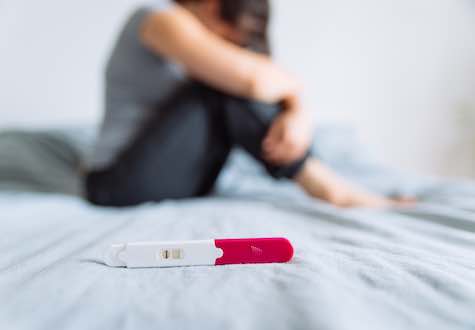
For adults of childbearing age diagnosed with cancer, a major concern is fertility preservation. Maintaining your ability to have children in the future. But it’s also a major expense.
Infertility treatment and cryopreservation (the freezing and banking of eggs, embryos or sperm) are often paid for out of pocket. Insurance coverage depends on your individual plan.
RESOLVE, the National Infertility Association, provides an online database of infertility insurance coverage by state. Currently, only 16 states have laws mandating varying degrees of infertility insurance coverage. Of these, only four — Connecticut, Delaware, Maryland and Rhode Island — have laws for treatment related to medically induced infertility. This is also known as iatrogenic infertility, such as from cancer treatment.
What to Expect
The American Society of Clinical Oncology recommends that cancer patients who are at risk of infertility see a reproductive health specialist before cancer treatment to understand all the options.
Costs vary widely, depending on which procedures you’ll need, where you live and the clinic you use. The Alliance for Fertility Preservation provides a breakdown of these variables:
- For women: Costs range from $10,000 to $15,000 for egg and embryo harvesting and freezing, plus annual storage costs of $300 to $600. Additionally, ovarian tissue harvesting and freezing, an experimental procedure, has similar costs. However, part or all of the costs may be covered if you’re enrolled in a clinical trial.
- For men: Cancer may reduce a man’s sperm count even before treatment begins, though researchers don’t yet know why. Also, for men able to collect a healthy semen specimen, the service cost of sperm banking is $500 to $1000, with storage costs of $150 to $400 per year. Some men may require additional procedures to collect viable sperm: testicular sperm extraction at $7,500 to $10,000; electroejaculation at $10,000 to $12,000; and then storage costs of $300 to $500 each year.
- For teens and children: The Pediatric Oncofertility Research Foundation maintains a list of qualified children’s hospitals that offer fertility services geared toward this special population. Clinical studies may pay part or all of the associated costs.
- For those undergoing radiation: Special shields can protect ovaries and testicles from scatter radiation at no additional cost.
Ways to Save
A financial counselor at your cancer hospital can help you determine your insurance coverage and whether you qualify for any fertility treatment discounts.
The LIVESTRONG Fertility Program has a network of more than 650 fertility clinics and cryobanks that offer free fertility medications and discounted fertility preservation services for women and men with cancer who have no or limited insurance coverage.
Financial Assistance
A financial counselor at your cancer care hospital can help you determine what your insurance plan covers and whether your cancer center offers any fertility treatment discounts.
Both the Alliance for Fertility Preservation and RESOLVE maintain lists of financial assistance programs, including grants and financing options. They also have options for financing adoption, for those who want to explore nonbiological means of creating a family.
Don’t overlook tax savings. If you itemize deductions, you can claim many fertility services as out-of-pocket medical expenses if they exceed 7.5 percent of your adjusted gross income for 2018. After the 2018 tax year, the floor returns to 10 percent.
While your reproductive health will depend on your unique cancer diagnosis, fertility preservation needn’t be out of your financial reach. It can be part of a holistic treatment plan for now and the future.
